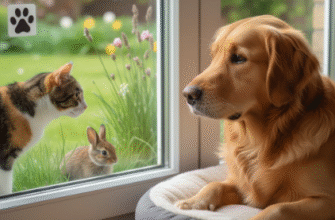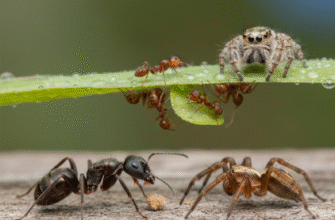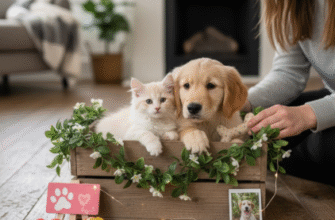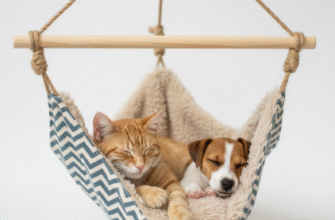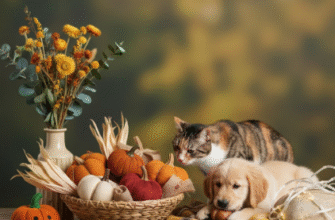Life moves fast. Juggling work, family, social commitments, and everything in between often leaves little room to breathe, let alone provide constant attention to a pet. Yet, the comforting presence of a cat – that quiet companionship, the soft purr at the end of a long day – is something many busy individuals and families crave. The fantastic news is that a packed schedule doesn’t mean you have to forgo feline friendship. The key is finding a cat breed known for traits that mesh well with a more bustling, independent lifestyle.
Not every cat needs constant supervision or endless interactive play sessions. Some breeds possess an inherent adaptability and independence that allows them to thrive even when their humans are frequently coming and going. They find contentment in observing the household buzz from a comfy perch, exploring their territory solo, or simply napping the day away until you return. Choosing wisely means finding a companion who complements your lifestyle, rather than one whose needs might clash with your daily reality.
What Makes a Cat Suitable for a Busy Home?
When seeking a feline friend for a high-energy household, certain characteristics tend to lead to a more harmonious relationship. It’s less about finding a cat who *doesn’t* like attention, and more about finding one who doesn’t *demand* it constantly or become overly stressed by activity. Think about these traits:
- Independence: Can the cat entertain itself? Breeds that are naturally curious and content with solo play or exploration often fare better when left alone for periods.
- Adaptability: Busy homes often mean noise, different people coming and going, and less predictable routines. Cats who aren’t easily startled or stressed by change adjust more readily.
- Lower-to-Moderate Energy: While some active cats manage fine if given outlets, breeds that are naturally more laid-back often require less intensive interactive playtime to stay content, which can be a plus for time-strapped owners. However, ensure they still get exercise!
- Sociability (but not Clinginess): A cat that enjoys human company when people *are* around is lovely, but one that doesn’t suffer extreme separation anxiety or demand constant interaction is often a better fit for busy lives.
- Resilience: Some cats are simply more unflappable than others. They take household chaos – kids playing, doors opening and closing, unfamiliar visitors – in stride.
It’s crucial to remember these are generalisations. Individual personality within a breed can vary wildly! However, exploring breeds known for these traits provides a solid starting point.
Top Cat Breeds for Bustling Lifestyles
Based on typical breed temperaments, here are several feline contenders well-suited to navigating the ebb and flow of a busy household:
The Adaptable All-Rounder: American Shorthair
Often described as the quintessential family cat, the American Shorthair is a true gem for busy homes. They strike a wonderful balance between being affectionate companions and independent explorers. Originating as working cats valued for their pest-control skills, they retain a degree of self-sufficiency. They enjoy playtime and cuddles when you’re available but are equally capable of finding their own amusement – watching birds outside the window, batting a toy mouse, or finding a sunbeam for a nap.
Their generally easygoing nature means they tend to handle household activity, including children and other pets (with proper introductions), quite well. They aren’t typically overly vocal or demanding, making them unobtrusive companions who are simply happy to be part of the family dynamic, whatever it may look like day-to-day. Their short, dense coat also means grooming needs are minimal, another plus for those short on time.
The Calm Companion: British Shorthair
If you envision a cat exuding quiet dignity and calm presence, the British Shorthair might be your perfect match. These plush, teddy-bear-like cats are renowned for their placid and undemanding nature. While they appreciate their humans, they are masters of self-containment and rarely become overly clingy. They are perfectly content supervising household activities from a comfortable sofa or bed.
British Shorthairs are not known for being hyperactive; they prefer a good nap and a measured approach to life. This makes them less likely to get underfoot or demand strenuous play sessions when you’ve just walked in the door exhausted. Their reserved but affectionate demeanour allows them to integrate smoothly into homes where routines might fluctuate. They handle being alone quite well, provided their basic needs for food, water, a clean litter box, and a comfy spot are met.
The Gentle Floof: Ragdoll
Despite their large size and luxurious coats, Ragdolls are surprisingly well-suited to busy environments, primarily due to their famously docile and adaptable temperament. Known for going limp (like a ragdoll) when picked up, they are typically very gentle and tolerant. They enjoy human company and often follow their people from room to room, but they usually do so unobtrusively.
Ragdolls aren’t overly demanding of playtime, though they enjoy gentle interaction. Their calm nature helps them cope with household noise and activity. While they love their people, they usually manage periods alone without excessive stress. Their main requirement beyond basic care is regular grooming to maintain their beautiful coats and prevent matting, which needs to be factored into even a busy schedule.
The Sociable Giant: Maine Coon
Another gentle giant, the Maine Coon, often thrives in active households. Known as the “dogs of the cat world” for their sociable and good-natured personalities, they tend to enjoy being in the midst of family life. They are often fascinated by activity rather than stressed by it. While playful and curious, they aren’t typically hyperactive in a demanding way.
Maine Coons form strong bonds with their families but aren’t usually clingy. They are intelligent and can often entertain themselves, especially if provided with puzzle toys or climbing structures. Their generally robust and easygoing nature helps them adapt to comings and goings. Like Ragdolls, their long coats require regular grooming, but their adaptable personality makes them a frequent favourite for busy families seeking a large, amiable companion.
The Sweet and Steady: Scottish Fold
Recognizable by their unique folded ears, Scottish Folds (and their straight-eared counterparts) typically possess sweet, gentle, and adaptable personalities. They adore their humans and enjoy being near them, often finding a spot in the same room, but they don’t usually demand constant interaction or lap time. They are moderately playful but also appreciate quiet time and naps.
Their calm disposition makes them relatively tolerant of household activity. They tend to bond strongly with their family but cope reasonably well with being alone for parts of the day. They are generally quiet cats, not prone to excessive vocalization. Their easygoing nature makes them blend well into various home environments, including busier ones.
The Low-Maintenance Snugglebug: Exotic Shorthair
Often described as the “lazy person’s Persian,” the Exotic Shorthair offers the sweet, gentle personality of the Persian but with a much easier-to-care-for short, plush coat. They are calm, affectionate, and enjoy lounging and being near their people. While they love attention, they aren’t overly demanding of it.
Exotics are typically quiet and placid, making them well-suited to apartment living or homes where peace is valued, even amidst busyness. They adapt well to routine changes and are generally content to snooze while you’re away, ready for a cuddle upon your return. Their low-maintenance grooming is a significant advantage for time-pressed owners who love the Persian look and temperament.
The Independent Observer: Russian Blue
Elegant and somewhat reserved, the Russian Blue is known for its independence and quiet nature. They form deep bonds with their chosen humans but can be shy or aloof with strangers. Importantly, they are quite adept at entertaining themselves and tolerate being alone better than many other breeds.
While they enjoy playtime, especially interactive games with their owners, they don’t demand constant stimulation. They prefer predictable routines but can adapt, often finding a quiet, out-of-the-way spot to observe the household hustle. Their intelligence means puzzle toys can be a great way to keep them engaged when you’re occupied. Their short, dense coat requires minimal grooming. For a busy person seeking a loyal but not overly demanding companion, the Russian Blue is a strong contender.
Beyond the Breed: Other Crucial Considerations
While breed tendencies provide helpful guidance, they aren’t the whole story. Several other factors play a vital role in ensuring a cat thrives, regardless of how busy the household is:
- Individual Personality: Just like people, cats have unique temperaments. You might find an exceptionally needy Maine Coon or a surprisingly independent Siamese. Spend time with a potential pet to gauge their specific personality.
- Age Matters: Kittens require significantly more supervision, socialisation, and playtime than adult cats. For a truly busy household, adopting an adult cat (2+ years old) whose personality is already established can often be a smoother transition. You’ll have a clearer idea of their energy levels and independence.
- Environmental Enrichment: A bored cat is more likely to become stressed or develop behavioural issues, especially if left alone frequently. Providing ample enrichment is non-negotiable. This includes vertical space (cat trees, shelves), scratching posts, window perches for “cat TV,” and a variety of toys (puzzle feeders, jingle balls, feather wands for interactive play when you *are* home). Rotate toys to keep things interesting.
- Safe Haven: Every cat, but especially those in active homes, needs a designated safe, quiet space where they can retreat and feel secure when things get overwhelming. This could be a covered bed in a low-traffic room, a high shelf, or even a dedicated cat cave. Ensure this space is respected by all household members.
- Quality Time (Even if Brief): Even the most independent cat needs connection. Make time each day, even if it’s just 10-15 minutes, for focused interaction – grooming, petting, or a dedicated play session. This reinforces your bond and helps meet their social needs.
Choosing the right breed known for adaptability and independence can significantly increase the chances of a harmonious match in a busy home. However, remember that individual temperament varies greatly within any breed. Always consider the specific cat’s personality and energy level, especially when adopting an adult, and ensure you can provide adequate environmental enrichment and a safe retreat, regardless of how hectic life gets. Responsible pet ownership means meeting their needs, even with a packed schedule.
Finding the right feline companion for a busy life is entirely possible. By focusing on breeds known for their adaptability, independence, and calmer natures, and by committing to providing a stimulating and secure environment, you can enjoy the unique joy and comfort that cat companionship brings, even when life is running at full speed. The key is realistic expectations, thoughtful selection, and ensuring their fundamental needs for safety, enrichment, and affection are consistently met.

